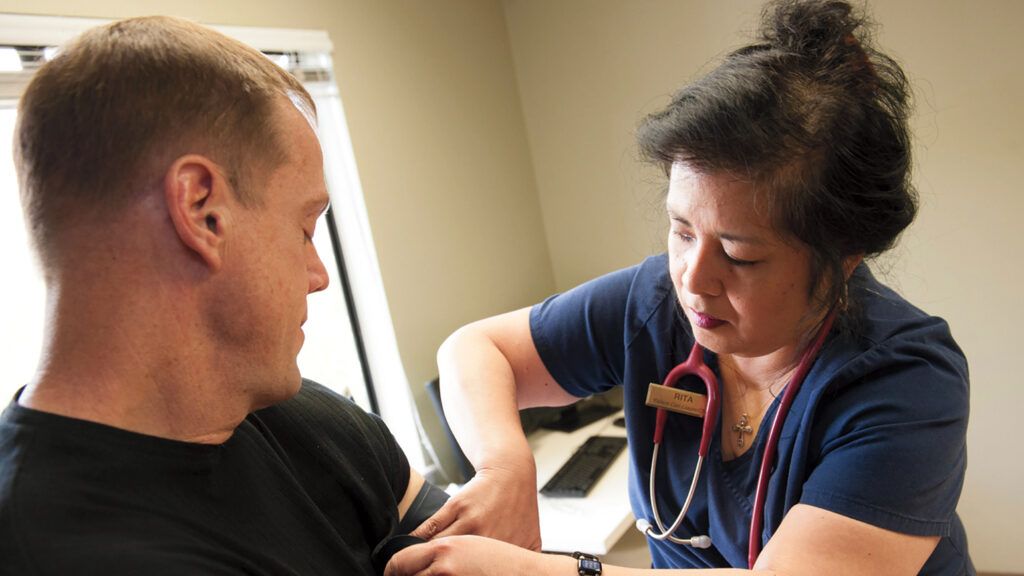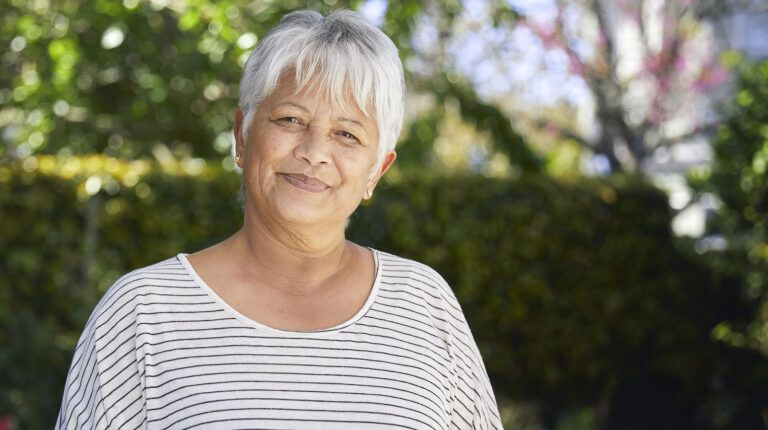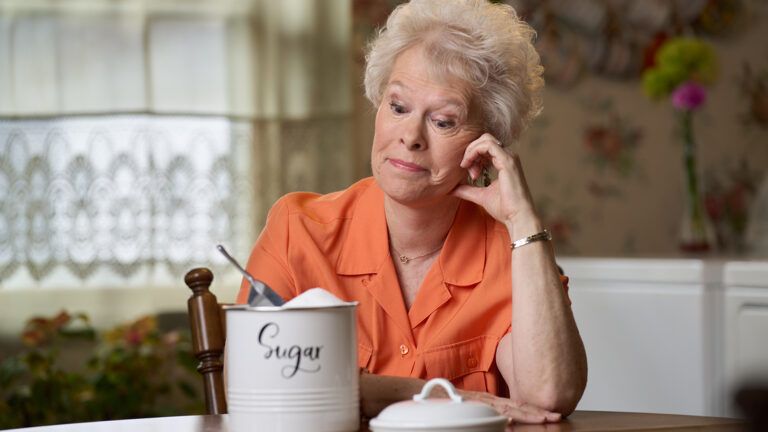Dave, my husband, was working crazy 18-hour days. I hardly saw him. But there was no reason to expect otherwise. He was a doctor in his third year of residency in orthopedic surgery at Rush University in Chicago. He had to work hard. He’d always worked hard. That’s who he was. Type A all the way. Focused, driven.
All the more reason we needed this vacation, a babymoon. I was five months pregnant with our first child, and we figured we’d give ourselves a trip to Hawaii before things got even more crazy. Just the two of us. Time together.
The last thing we did before leaving our apartment was say goodbye to our dog Penny. (A friend was going to pick her up later.) Penny wagged her tail and went around in circles. Dave gave her a hug. “We’ll be back soon. You’ll see us again, Penny.” That was Dave, the man I married. Affectionate and reassuring, seeing to the needs of the ones he loved. Even Penny.
We jumped in a taxi to O’Hare International Airport. As soon as our flight took off, Dave got out his laptop. Some medical article he had to read, I figured. “Don’t work too hard,” I said, squeezing his hand. “I’m taking a nap.”
The next thing I knew, he was giving me a nudge and asking me to look in his eyes, his right pupil so dilated, I couldn’t even see the iris. Fear rushed through me. “Are you having a stroke?” I asked.
“I think so,” Dave said. Then he lost consciousness.
I rushed to get help. There was a nurse in the row in front of us, soon joined by a doctor and an EMT also on the flight. They stretched out Dave’s unconscious six-foot, two-hundred-pound frame across a row of seats. “He needs to get to a hospital immediately,” the doctor said. We made an emergency landing in Fargo, North Dakota.
At the hospital, Dave was intubated but didn’t wake up. Family flew in. I looked to Dave’s dad—a neurologist—for some sign of hope. Surely he would know what to do. But the diagnosis was anything but reassuring: an ischemic midbrain stroke, one of the worst kinds. All I could do was pray and ask others to pray.
That night I had a dream that Jesus was with Dave in the hospital, telling him about all the prayers coming his way. “I’m on the case,” Jesus said, sounding just like a doctor. Like Dave.
After three days, my husband was transferred by air ambulance to Chicago, still unconscious. Best to get him back at Rush, close to home, with doctors and nurses who knew him. If only he’d wake up.
That first full day at Rush, I showed up in his room and was amazed to find him sitting up in bed, alert, smiling. I grabbed his hand. The nurse asked him who I was. “Alli,” he said. Who was she? “My wife.” How long had we been married? “Four years.”
I was overwhelmed with relief… briefly. Dave’s father took me aside and let me know just how complex Dave’s case was. The part of the brain damaged by Dave’s stroke, the thalamus, did not regulate his basic motor skills. Soon enough he would be moving around. He’d look normal, but his cognitive deficits were the most worrisome. The thalamus, my father-in-law explained, is like a microprocessor, coordinating everything the brain does, including thinking and personality.
“He might not be the same man, Allison,” my father-in-law said.
Every day, I was with Dave at the hospital and then at the rehab hospital, working with the doctors, the nurses, the therapists. Trying to be positive. Holding on to hope. But at night, home alone with Penny, I found it harder to keep the faith. Would I ever get my husband back? Would he ever be the same? His conversation was an incoherent babble so much of the time, this brilliant man who never used to stumble over a word.
Friends tried to reassure me: “It’s a marathon, not a sprint.” “Take it day by day.” “It will be a long road.” “Two steps forward, one step backward.” What they said might have been clichés, but there was a truth to them: It would be a long road; it would be a marathon. I had to accept that.
Yet not even the top neurosurgeons could say whether my Dave would emerge from his damaged brain. Control was an illusion that had shattered into a million pieces. What would happen when Dave came home? How would we manage when the baby arrived?
One day in speech therapy, Dave was asked to name as many fruits and vegetables as he could in one minute. He named three. He was supposed to come up with a woman’s name for each letter of the alphabet. He couldn’t get past the letter A. My name begins with A.
So much of our relationship had been based on unspoken signals. Dave was intuitive. He knew when I hurt, when I needed quiet, when I yearned for a hug, when it was time to laugh. Gone. Everything at home reminded me of how far removed our former life had become. The dishes we had received as wedding presents, photos of us on trips, notes we had written to each other and tucked in random places. Would my husband ever be the same man, or would he stay a stranger? The thought rattled me to the core.
I told myself I should be grateful that Dave was still alive. But this man, this stranger working so hard with therapist after therapist, was not the man I married. “I’m on the case,” Jesus had said in my dream. Was this as far as the case would come?
My friend Marya came from Washington, D.C., to help out. I was in my sixth month, the fatigue all-encompassing. Our unborn daughter. I could feel her kick and squirm. Would she ever know her father the way I had known him? What kind of parent could he be?
Marya came up with a plan to cheer us both up. She would bring Penny down to the rehab hospital, and I’d bring Dave outside to greet her. He hadn’t seen Penny since we left for our aborted vacation, weeks earlier. I could still picture her wagging her tail, turning in circles, as Dave knelt down to hug her. One of the last moments of our previous life.
The two of us went down to the street and stepped out of the hospital. There was Penny on her leash. Dave didn’t even recognize her. More shocking, Penny didn’t seem to know him. She cowered between my legs as though he were a complete stranger, a confirmation of all my deepest unspoken fears.
Dave came home. He transitioned to outpatient therapy. He slept for hours. I drove him back and forth as if he were a kid. Those clichés were proving all too true. A marathon, not a sprint. One step forward, one step back. Any day would see the birth of our daughter. We’d gone to classes; we’d done all the preparation. Dave would be my coach. But that was the other Dave; the old Dave, my partner.
His rehab doctor assured me that Dave would be able to participate in the birth of our daughter, but I wasn’t so sure. I just couldn’t see how Dave would be able to focus on everything happening at the hospital that day, much less the tasks of caring for a newborn. No matter how much I prayed, I worried. How were we going to manage?
On a Saturday in October, I went into labor. We hung out at home for as long as we could, then got a ride to the Northwestern Prentice Women’s Hospital, where I was admitted. At least it was a different hospital than the one where Dave had been.
The Chicago Cubs were playing that evening, hoping for a long-awaited chance to go to the World Series, the entire city in a postseason frenzy of red and blue. The game was on TV in the background, Dave turning to it in between contractions. Was he incapable of concentrating on my labor? More interested in a simple baseball game? No. No, I sensed, this was more like the old Dave—relaxed, confidently multitasking, monitoring my contractions, cheering me on, bringing me damp washcloths to swab the sweat from my face, squeezing my hand just when I needed it. Me squeezing back, just as I’d done on the plane right before the stroke.
Our baby made her entrance. Dave himself cut the umbilical cord. The moment he took our little girl in his arms, I could see the pure love in his soft green eyes. It was that part of him, his soul, divinely given, that still burned bright. That part of Dave—of all of us—that remains intact, no matter what.
There were still many more months of rehab to go, and none of it was any easier with a newborn around. The sleepless nights, the challenge of taking care of our daughter while also taking care of Dave and cheering him on at home and at rehab. Sometimes the fears got the better of me. But my faith had grown. I’d always thought that what you believed would shelter you from the worst. Now I knew: Faith was the companion that sustained you through the worst.
One year after the stroke, Dave returned to his residency. He is a doctor today, although not a surgeon—he works as a hospital consultant. He’s bright, committed, maybe a little less type A than he used to be. He has changed, but I have too. I think of a line I’ve circled and underlined in one of my favorite devotionals: “The truth is that self-sufficiency is a myth perpetuated by pride and temporary success. Health and wealth can disappear instantly, as can life itself. Rejoice in your insufficiency, knowing that God’s power is made perfect in weakness.” It is indeed.
For more inspiring stories, subscribe to Guideposts magazine.






